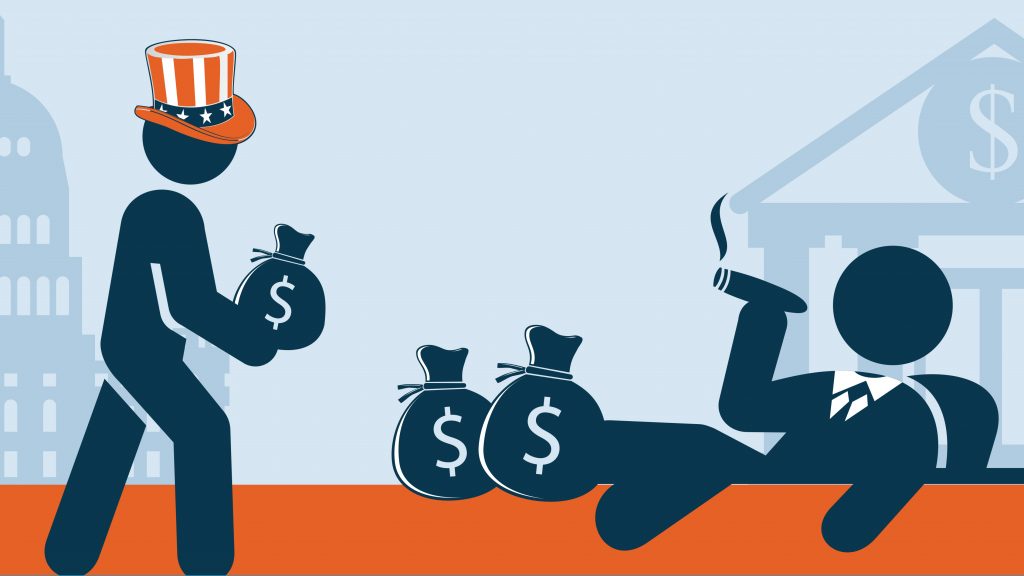Nov 29, 2008
Mary Shafer on security
~ Mary Shafer, NASA engineer
Madonna on ambition
~ Madonna
Nov 28, 2008
Dr. Johnson on learning the truth
~ Samuel Johnson (1709-1784)
Nov 25, 2008
Marc Faber on propping up failed enterprises
~ Marc Faber, Bloomberg TV, November 25, 2008

Jim Rogers on how the financial system needs to allow failure
Why are we bailing out Citibank? Why are 300 million Americans having to pay for Citibank's mistakes? The way the system is supposed to work... People fail, and then the competent people take over the assets from the failed people and you start again from a new, stronger base. What we're doing this time is they're taking the assets from the competent people, giving them to the incompetent people, and saying, "Ok, now you can compete with the competent people." So everybody's weakened. The whole nation is weakened. The whole economy's weakened. That's not the way it's supposed to work.
There are many banks, many brokers, many homeowners, many citizens who've been sitting there, doing what they were supposed to do, minding their manners, not getting extended, waiting for this to happen, knowing that someday all of this foolishness is going to wind up as a disaster. Now, instead of being rewarded, they're being punished. All these homeowners who did nothing wrong are now having to pay for the people who did crazy things like buying four homes with no job. This is weakening America dramatically.
~ Jim Rogers, Bloomberg TV, November 24, 2008
Stephanie Pomboy on how the TARP is encouraging the banks to drag their feet on deleveraging
The upshot is that while hedge fund deleveraging is nearly complete, as implied by the massive reduction in total spec positions in any number of markets (like currencies), banks haven’t even begun.
~ Stephanie Pomboy, "Send in the Clowns," MacroMavens, November 20, 2008
Report from Iron Mountain and stabilizing society
~ Leonard Lewin, editor, Report from Iron Mountain, as quoted by G. Edward Griffin, The Creature from Jekyll Island, page 517. Griffin has this to say about the origins of the report - "Although the origin of the report is highly debated, the document itself hints that it was commissioned by the Department of Defense under Defense Secretary Robert McNamara and was produced by the Hudson Institute located at the base of Iron Mountain in Croton-on-Hudson, New York. The Hudson Institute was founded and directed by Herman Kahn, formerly of the Rand Corporation. Both McNamara and Kahn were members of the CFR."
Alan Greenspan on the cause of the Great Depression
~ Alan Greenspan as quoted by G. Edward Griffin, The Creature from Jekyll Island, page 474
The Club of Rome on pollution and global warming
~ Alexander King and Bertron Schnieder, The First Global Revolution, a Report by the Council of the Club of Rome, as quoted by G. Edward Griffin, page 528
Ron Paul and Lewis Lehrman on the Progressive Era
~ Ron Paul and Lewis Lehrman, as quoted in G. Edward Griffin, The Creature of Jekyll Island, page 434
John D. Rockefeller on competition
~ John D. Rockefeller, as quoted by G. Edward Griffin in The Creature from Jekyll Island, page 434
Andrew Jackson in vetoing the charter for the Second Bank of the United States
~ Andrew Jackson, as quoted in G. Edward Griffin, The Creature from Jekyll Island, page 350
Thomas Jefferson on banking and paper money
~ Thomas Jefferson, as quoted in G. Edward Griffin, The Creature from Jekyll Island, page 338
Alexander Hamilton on Fiat Money
~ Alexander Hamilton, as quoted in G. Edward Griffin, The Creature from Jekyll Island, page 316
 |
| Alexander Hamilton Bicentennial 1757-1957 |
Paul Kasriel on the Troubled Asset Relief Program (TARP)
~ Paul Kasriel, chief economist, Northern Trust, "U.S. Pledges Top $7.7 Trillion to Ease Frozen Credit ," Bloomberg.com, November 24, 2008
Ben Bernanke on the Troubled Asset Relief Program (TARP)
~ Ben Bernanke, Federal Reserve chairman, talking before the House Financial Services Committee, November 18, 2008
(Quote sited in "U.S. Pledges Top $7.7 Trillion to Ease Frozen Credit ," Bloomberg.com, November 24, 2008.)
Nov 23, 2008
John Maynard Keynes on economic stimulus
~ John Maynard Keynes, The General Theory of Employment, Interest and Money (1936), p. 129
Nov 22, 2008
Rich Tucker on auto industry subsidies
Washington wouldn’t be the first capitol to pour taxpayer capital into the automotive business. In the 1970s and ’80s, the British government took an ownership stake in British Leyland. Before all was said and done, the government had spent $16.5 billion in inflation-adjusted money on the company, which ended up folding, anyway.
“I’m not telling the U.S. what to do, but the lessons of the British experience is don’t throw good money after bad,” Leon Brittan, an aide to former Prime Minister Margaret Thatcher, told The New York Times. “British Leyland carried on for a few more years, but they’re not there now, are they?”
Under government ownership, British cars were notoriously bad. We could expect the same thing here, once members of Congress are acting as automotive engineers. If you thought federal regulations hampered car makers, wait until the government’s in the room during the design process.
~ Rich Tucker, "Driven to Destruction," Townhall.com, November 21, 2008
Nov 20, 2008
Charles Gasparino on the securities industry
~ Charles Gasparino, CNBC, November 20, 2008
Kevin Duffy on the lesson of the collapses of Fannie Mae and Freddie Mac
~ Kevin Duffy, Bearing Asset Management, November 20, 2008
Nov 18, 2008
Robert Prechter on credit expansion
~ Robert Prechter, Conquer the Crash, p. 105
Nov 17, 2008
Kevin Duffy on bubbles
- Parabolic rise in prices and/or related metrics
- Valuations that detach from underlying fundamentals
- Broad public participation (subjective and can vary from a narrow company- or industry-specific bubble to a full-blown mania)
- Rationalizations for the boom and/or high valuations continuing (“it’s different this time”)
The bubble can manifest itself in price (e.g., tech, Internet and growth stocks in 2000) or earnings (e.g., homebuilding stocks in 2005, credit-related stocks in 2007, commodity-related stocks in 2008). One should also see signs that economic actors are changing their behavior (e.g., demand destruction, college students flocking to an industry, families melting down their silverware, criminals stealing D-RAM chips, etc.). The ultimate test of a bubble is after the fact: in real terms all of the gains of the bubble period are wiped out.
~ Kevin Duffy, Bearing Asset Management, November 17, 2008
Ron Paul on freedom's last line of defense
~ Ron Paul, The Revolution: A Manifesto (2008)
Nov 16, 2008
Herbert Hoover jawboning business to keep people employed and factories running
~ President Herbert Hoover, shortly after the '29 crash
(Quote sited by Martin D. Weiss, "Why Washington Cannot Prevent Depression," Money and Markets, November 10, 2008.)
Nov 14, 2008
Kevin Duffy on hedge funds
~ Kevin Duffy, Bearing Asset Management, November 14, 2008
Nov 12, 2008
Henry Paulson on TARP changes
~"Paulson Shifts Focus of Rescue to Consumer Lending", Bloomberg, November 12, 2008
Mark Hulbert on how the doomsayers got it wrong in 2008
Just ask Harry Schultz. Or Howard Ruff. Or Jim Dines.
All three advisers, each of whom has been editing an investment newsletter at least since the 1970s, have built their investment careers by questioning conventional wisdom's trust in the soundness of the financial system. Not surprisingly, all three have been vociferous champions of gold and other precious metals.
You'd think that they would have cleaned up over the last year, since the disintegration of the financial system in recent months is almost exactly what they have been warning us about for decades.
But you'd be wrong.
Of the 181 newsletters on the Hulbert Financial Digest's monitored list, these three advisers' newsletters are in 173rd, 175th, and 176th places for year-to-date performances through October 31, with losses ranging from minus 64.9% to minus 70.0%.
~ Mark Hulbert, "Getting it right and still losing," MarketWatch, November 12, 2008
Nov 10, 2008
Ken Fisher on solving the credit crunch (he failed to see coming)
The other thing you do [is] manipulate, planfully, the spread between the discount rate, the Fed funds rate, and the T-bill rate…The way to end the liquidity crisis is to drop the discount rate relative to the Fed fund rate, which then motivates banks which are troubled to go to the discount window, plead baby shoes, get cheap money at the discount window, and then turn their rear ends around and lend it out at the Fed fund market rate because it’s free money. You borrow at the discount window cheap, you lend it to the safest bank you know, and now that bank has excess reserves, and they lend it out. The way the Fed has always unlocked liquidity freezes is to increase the spread between the discount rate and the fund rate. If you want to get more extreme, drop the discount rate below the T-bill rate, and now you have a riskless transaction.
~ Ken Fisher, "Catching Up With: Ken Fisher," Investment Adviser, November 1, 2008, by James J. Green
Ken Fisher on the credit crunch
~ Ken Fisher, "Catching Up With: Ken Fisher," Investment Adviser, November 1, 2008, by James J. Green
Nov 8, 2008
Murray Rothbard on the source of the business cycle and how to end a depression
~ Murray Rothbard, "Economic Depressions: Their Cause and Cure," 1969
Ludwig von Mises on the futility of attempting to emerge from an economic crisis through interventionist measures
~ Ludwig von Mises, The Causes of the Economic Crisis (1931)
Heritage Auction Galleries: Aluminum was once a precious metal
~ Heritage Auction Galleries, September 20, 2008
Nov 5, 2008
Emma Goldman on the right to vote
~ Emma Goldman
Nov 3, 2008
Laurence Fink: "We are trading liquidity for illiquidity" (2007)
~ Laurence D. Fink, CEO, BlackRock, FT.com, April 26, 2007

Nov 2, 2008
Ed Yardeni: "Greatest global boom of all time" (2006)
It's better than Goldilocks quite honestly. This is the greatest global boom of all time.
~ Ed Yardeni, Oak Investments, as appeared on CNBC, October 18, 2006
Art Laffer: "It's a beautiful economy" (2006)
Art Laffer, as appeared on CNBC, November 15, 2006
Jason Trennert: Nervousness is "good news from a contrarian standpoint" (2006)
Jason Trennert, as appeared on CNBC, October 17, 2006
Abby Joseph Cohen: Economic slowdown good for investors (2006)
~ Abby Joseph Cohen, as appeared on CNBC, October 17, 2006
